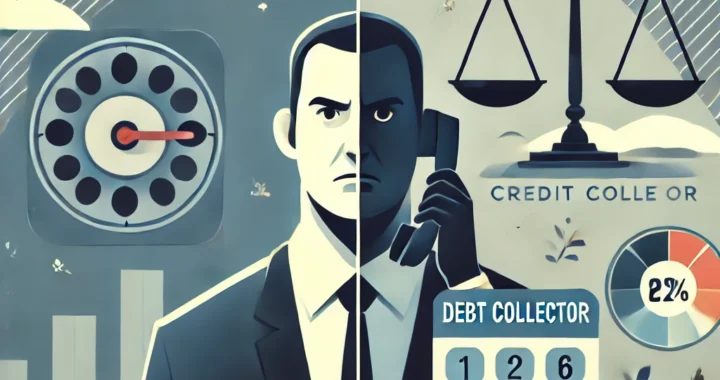Debt collection is often misunderstood, with many misconceptions clouding the true nature of the process. For consumers, these myths can fuel anxiety and prevent constructive communication with collection agencies. By debunking some of the most common myths, we hope to clarify what debt collectors can and cannot do, helping both consumers and businesses navigate this process more smoothly.
Myth 1: Debt Collectors Can Harass You
One of the most prevalent myths is that debt collectors are allowed to harass, threaten, or intimidate people into paying their debts. This is absolutely false. In fact, the Fair Debt Collection Practices Act (FDCPA) strictly prohibits any form of harassment. Debt collectors cannot:
- Use obscene or profane language
- Threaten violence
- Call excessively or at inconvenient times (e.g., before 8 a.m. or after 9 p.m.)
- Publish lists of individuals who owe money
If a debt collector crosses these lines, they are violating federal law, and consumers have the right to report them to regulatory bodies like the Consumer Financial Protection Bureau (CFPB).
Myth 2: All Debt Collection Negatively Impacts Your Credit Score
It’s true that having an account in collections can impact your credit score, but not all situations are equal. The severity and timing of the debt play significant roles in how your score is affected. For example:
- Older debts may have less impact than more recent ones.
- Paying off a debt in collections can improve your score, especially if the collector reports the payment to credit bureaus.
- Medical debts, which are often sent to collections due to insurance delays, are treated differently by credit scoring models, and recent changes have made it so that paid-off medical collections no longer impact credit scores.
While having a debt in collections isn’t ideal, taking steps to address it can mitigate the damage to your credit.
Myth 3: You Can Be Arrested for Not Paying a Debt
Many people fear that failure to pay a debt could lead to arrest, but this is a myth. In the U.S., debt collection is a civil matter, not a criminal one. You cannot be arrested or imprisoned for failing to pay most types of debts (like credit card bills, medical expenses, or personal loans).
The only exceptions involve court-related fines or debts tied to criminal activity, but even then, jail time is for failing to comply with court orders, not for the debt itself. In most cases, the worst a collection agency can do is file a lawsuit to recover the funds, but even this is a civil action and does not involve criminal penalties.
Myth 4: Debt Collectors Can Take Your Wages or Property Without Notice
Debt collectors cannot simply take your wages, property, or bank accounts without due process. In most cases, wage garnishment or asset seizure requires a court order, and debt collectors must first win a lawsuit against you. Even then, there are strict limits on how much can be taken from your paycheck, and certain assets are protected by law.
Some types of debts, like federal student loans or child support, are an exception and may be subject to automatic wage garnishment without a court order, but this process is still highly regulated and comes with advance notice.
Myth 5: You Don’t Have to Pay Debts Older Than a Certain Number of Years
While it’s true that most debts have a statute of limitations, meaning creditors have a limited time to sue for payment, this doesn’t mean the debt simply vanishes after that period. The statute of limitations varies by state and type of debt but generally ranges from 3 to 10 years.
Even if the statute of limitations has expired, collectors can still attempt to collect the debt. However, they cannot take legal action, and it’s important to know your rights in these situations. If you make a payment or acknowledge the debt, you may unintentionally restart the clock on the statute of limitations.
Myth 6: You Should Avoid Talking to Debt Collectors
Many consumers believe that ignoring debt collectors is the best way to handle the situation, but this only makes things worse. Open communication is crucial. By talking to collectors, you may be able to:
- Negotiate a lower payment amount
- Set up a payment plan that fits your budget
- Prevent further legal action, such as a lawsuit
Most debt collectors prefer working out an agreement that benefits both parties. Silence can escalate the situation and potentially lead to more severe consequences, like a negative mark on your credit report or legal action.
Myth 7: You Don’t Have Rights When It Comes to Debt Collection
Some consumers assume they are powerless when dealing with debt collectors, but this couldn’t be further from the truth. You have several rights, including:
- The right to dispute a debt
- The right to ask for verification of the debt
Conclusion
The debt collection process can be intimidating, but many of the common fears surrounding it are based on misinformation. Understanding your rights and the limitations on what debt collectors can do helps both consumers and businesses approach the situation with clarity and confidence. If you ever feel unsure, remember to consult with a financial advisor or legal professional to ensure you’re handling your debts in the best way possible.
By debunking these myths, we hope to foster more transparent and constructive conversations between debt collectors and consumers, leading to better outcomes for all parties involved.

